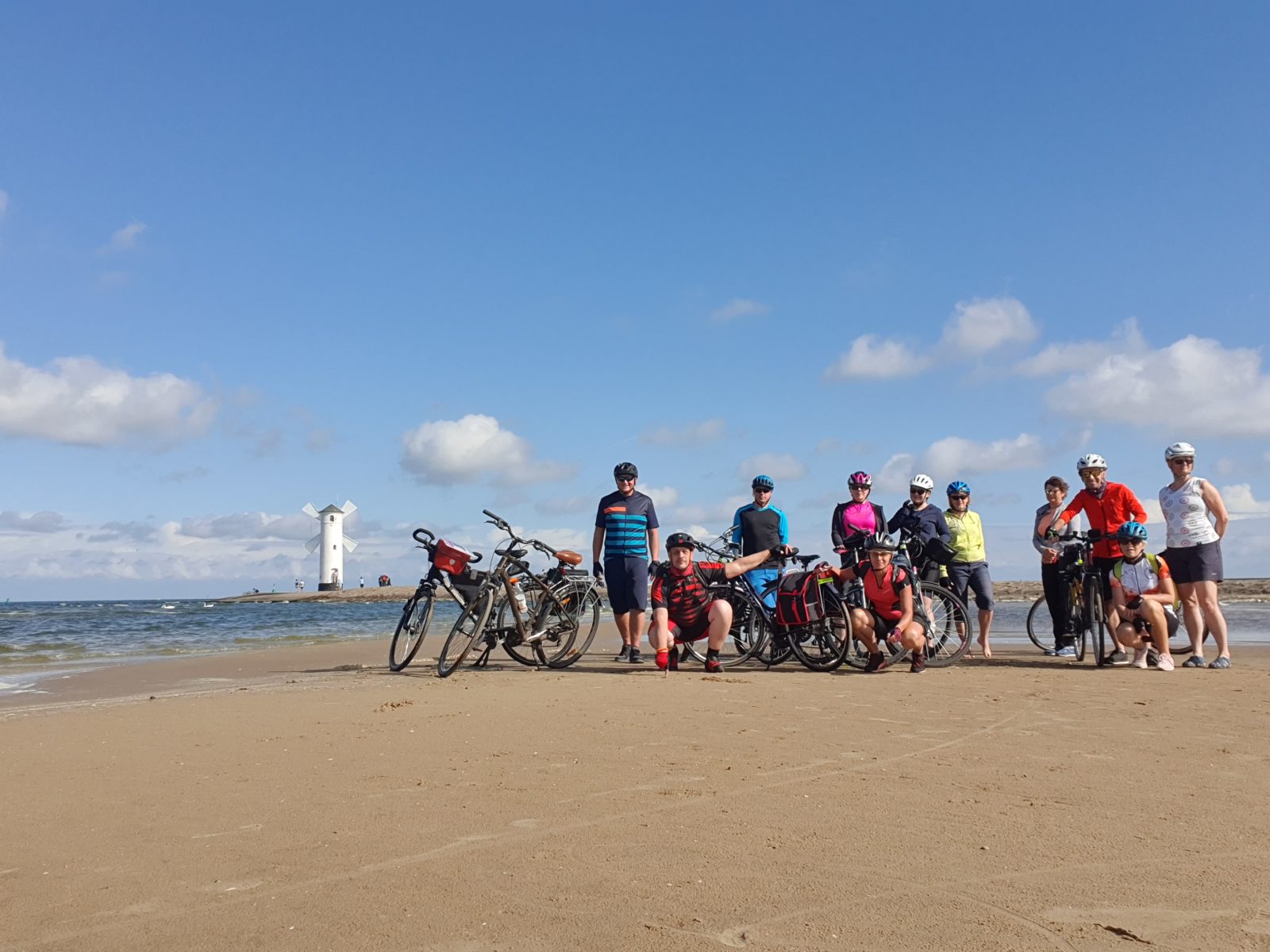
Land of 44 Islands is located in the north-west part of Poland, in the Zachodniopomorskie Region. Świnoujście and around the Szczecinski Lagoon is an amazing paradise for cyclists – travelers. The cross-border location of Świnoujście, an exceptionally developed network of bicycle paths on the Polish and German side of the border gives the possibility of countless cycling trips in a relatively small area in a unique nature. The attractive starting point of Świnoujście allows not only to enjoy the charms of the seaside promenades, but also to explore the islands on which it is located and which are adjacent to it: Wolin, Uznam and Karsibór. These are the largest, and among them many smaller, which gives the region the name of the Land of 44 Islands.
We invite you to an unforgettable adventure to places that you must see and those that are less known, but equally captivating. One of the routes also leads to German seaside promenades and to imperial resorts and spas. The second part of the stay is a trip along the Szczecin Lagoon, a total of about 100 km trail through the Wolin Island, and on it: Międzyzdroje, Wolin and Wolin National Park. We recommend to visit Szczecin and its attractive natural surroundings – the Lower Oder Valley. The trips’s program has been arranged in such a way that there is time to explore and relax in the picturesque guesthouses and comfortable hotels.
Attractions and programme of the bike tour:
Transfer of Participants from Szczecin to Świnoujście
Accommodation in hotel in the afternoon
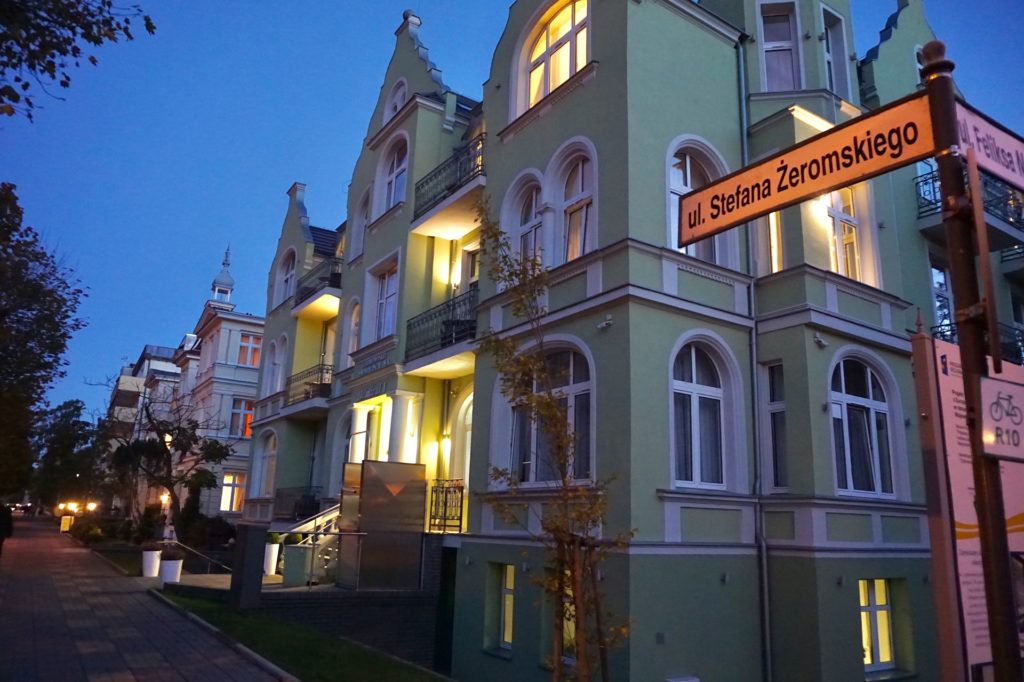 The Seaside Quarters – villas and promenade – houses of historical value, characteristic for spa architecture, antique buildings with decorated facades, columns, turrets and loggias, typical for the so called Kaiser spa architecture. The windmill-shaped beacon – the navigation sign, situated at the stone-made western breakwater in 1873-1874. It is the best known symbol of Świnoujście.
The Seaside Quarters – villas and promenade – houses of historical value, characteristic for spa architecture, antique buildings with decorated facades, columns, turrets and loggias, typical for the so called Kaiser spa architecture. The windmill-shaped beacon – the navigation sign, situated at the stone-made western breakwater in 1873-1874. It is the best known symbol of Świnoujście.
Świnoujście Forts: Western For amd Angel Fort, Gerhard Fort, Underground City Battery Vineta – the construction of fortifications at the mouth of the Świna River began in the early Middle Ages and lasted virtually continuously to modern times. 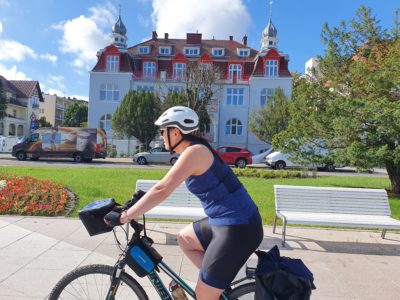 This was due to the geographical location of Świnoujście and its importance for trade, maritime economy and defense. Until the beginning of the 17th century, Pomeranian princes built up makeshift fortifications here, later the Danes and Swedes, and at the turn of the 18th and 19th centuries in Prussians and the French. It wasn’t until the nineteenth century that the Prussian army initiated the construction of a complex of permanent fortifications that transformed Świnoujście into a fortress.
This was due to the geographical location of Świnoujście and its importance for trade, maritime economy and defense. Until the beginning of the 17th century, Pomeranian princes built up makeshift fortifications here, later the Danes and Swedes, and at the turn of the 18th and 19th centuries in Prussians and the French. It wasn’t until the nineteenth century that the Prussian army initiated the construction of a complex of permanent fortifications that transformed Świnoujście into a fortress.
Lighthouse the highest lighthouse at the Baltic coast, the focal height is 68 m.
Spa Park – designed by Peter J. Lenne in the 19th century. Lenne was the landscape architect famous for the royal gardens in 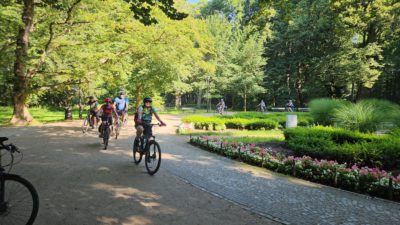 Berlin and Sanssouci gardens in Potsdam. Park is one of the most outstanding spa parks in Europe, featuring a wide variety of flora, including the valuable and original ancient forest as well as many unique and protected plant species;
Berlin and Sanssouci gardens in Potsdam. Park is one of the most outstanding spa parks in Europe, featuring a wide variety of flora, including the valuable and original ancient forest as well as many unique and protected plant species;
The Maritime Fishing Museum – seated in the former Town Hall building, which was built in 1804‑1806, is the oldest in town. The exhibits show the history of fishing, the town and the region, the museum presents historic navigation devices and marine
fauna specimens.
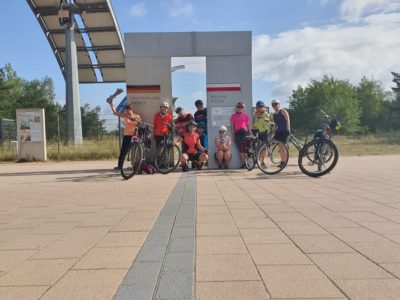
The cross-border, Polish – German promenade, part of the International coastal biking trail – Eurovelo R-10
German seaside resorts: Ahlbeck, Heringsdorf, Bansin – former imperial spas, with eclectic buildings, often called spa or “Kaiser” architecture. The unique architectural style was formed on Usedom at the turn of the 19th and 20th centuries. Royal and imperial families found a holiday paradise here.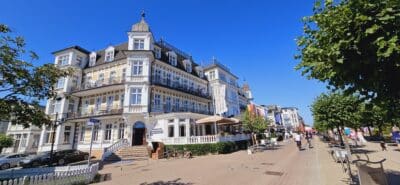 Referring to the Renaissance, Baroque or Classicism objects are today architectural monuments that give the area a bit of fairytale charm and splendor.
Referring to the Renaissance, Baroque or Classicism objects are today architectural monuments that give the area a bit of fairytale charm and splendor.
Lakes Gothensee and Wolgast, Schmollensee, Achterwasser
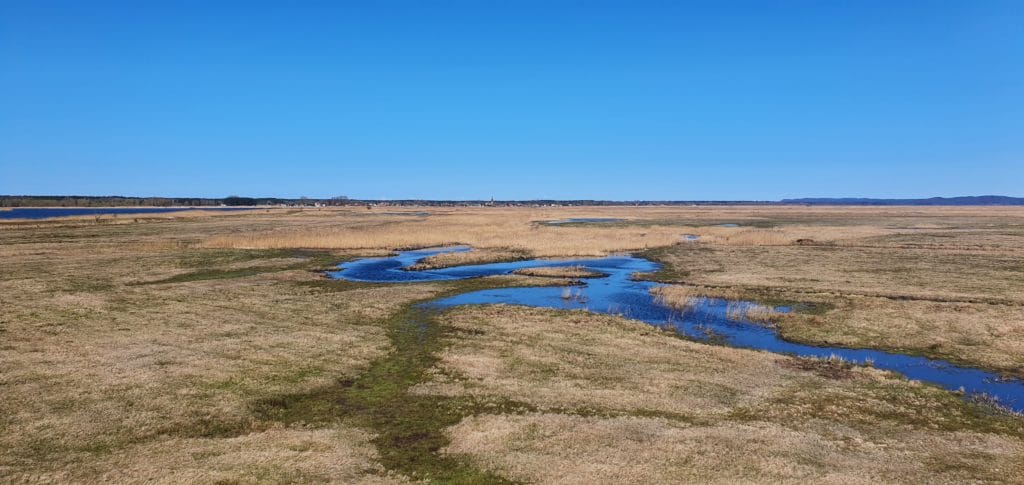
Border bridge (Garz) on the peat channel – entry to the Uznam Island
Hill and war cemetery of Golm
Kamminke – a cozy fishing village
Ferry to Karsibór Island
U-boats Basin – built in 1944, until the end of the WW II, it was the U-Boot base of the Kriegsmarine 4th training flotilla.
Karsibór – The church of the Holy Virgin Mary – built at the place of the historical crossing of the Świna River to Przytór which was part of the ancient trade route around the Baltic Sea. The original was built in the 15th or 16th century.
Kępa Karsiborska – kingdom of birds with a viewing tower – an internationally renowned natural reserve which is taken care of by the Polish Society for the Protection of Birds.
Reed meadows and fields (Zajęcze Łęgi) and south-eastern breakwater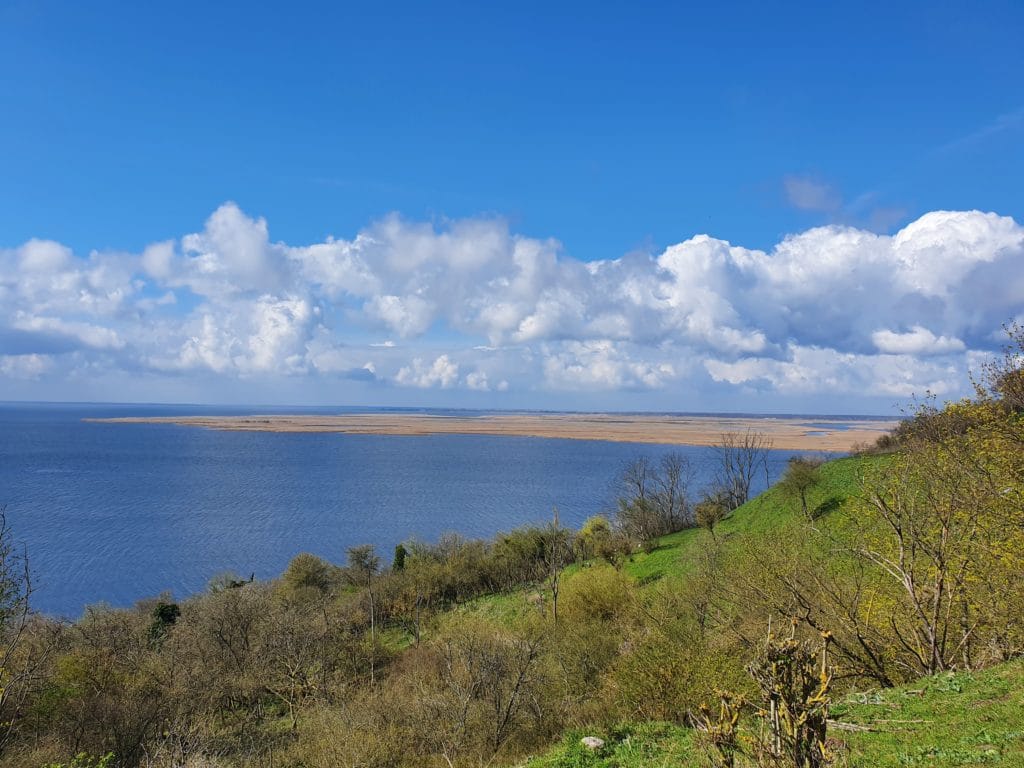
International coastal biking trail along Baltic sea side – Eurovelo R-10
Miedzyzdroje
Wolin National Park
Wapnica – Turquoise Lake
Wolin – Center of Slavs and Vikings,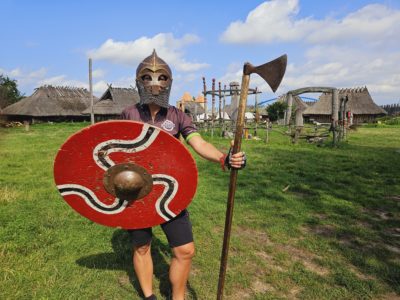
Along the Dąbie Lake
Lubczyna – beach and marina
Old Town and Pomeranian Dukes’ Castle
Archcathedral Basilica of St. James
Philharmonic Mieczysław Karłowicz
Jasne Błonia
Optionally longer trip with Lower Oder Valley – distance approx. 55 km
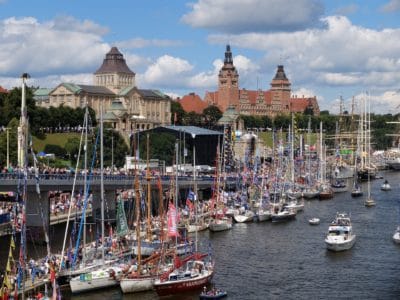 Day 8 Szczecin
Day 8 SzczecinEnd of the tour after breakfast
Road surface: asphalt 60% of whole tour, the rest – dirt roads
Daily elevation: 0 – 180 m
Daily distance approx. 20 – 70 km
Whole distance of the bike tour approximately: 310 km.
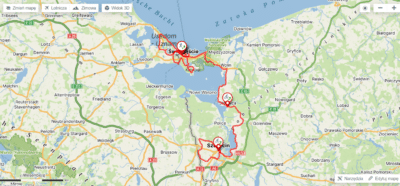
The taste of comfort and adventure!
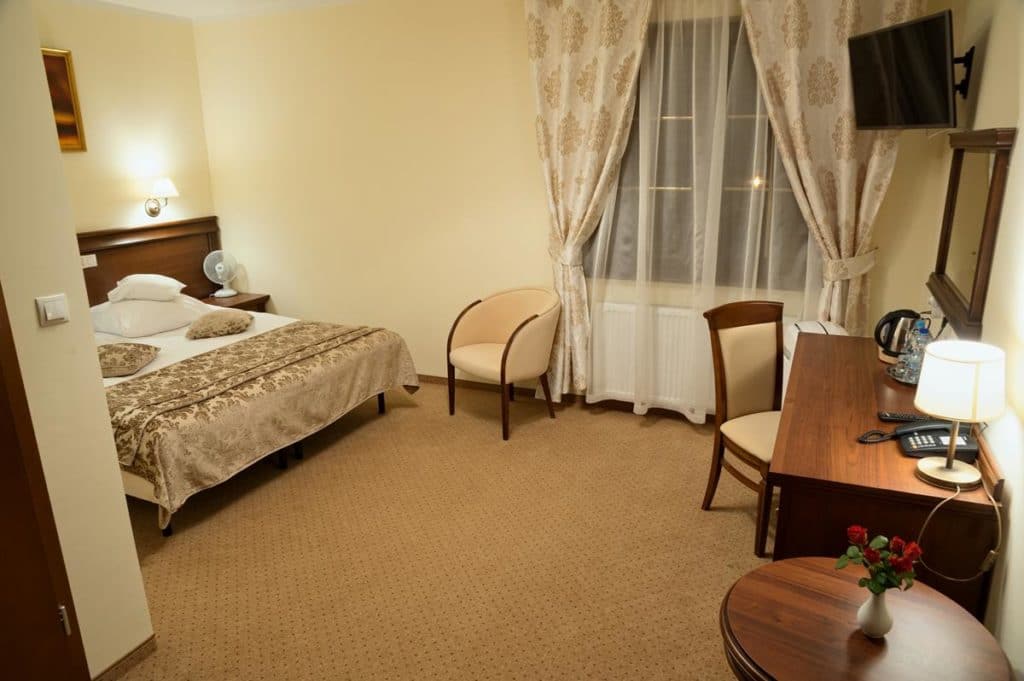 comfortable accommodation for 7 nights in the hotels and pensions (3-stars), double rooms with bathroom
comfortable accommodation for 7 nights in the hotels and pensions (3-stars), double rooms with bathroomGroup 2-4 participants: from 7.190 PLN
Group 5-8 participants: from 6.350 PLN
Group 8-15 participants: 5.390 PLN
Prices for more participants – ask us
Final price varies depending on the dates and hotels availability.
Final price varies depending on the dates and hotels availability.
In the comments field, please enter the proposed trip date and number of people. At your request, we can modify the route and scope of services – this need should also be described in the comments field.
Contact us for professional and friendly advice!
Promotional materials do not constitute an offer within the meaning of art. 66 of the Civil Code.